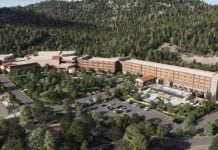Seven tribal leaders share how gaming revenues have benefited their tribes and communities, the initiatives and goals for their gaming enterprises, and legislative/political issues of concern. Here is what they had to say…
Andrew “Dru” Alejandre, Chairman
Paskenta Band of Nomlaki Indians
Rolling Hills Casino & Resort – Corning, CA
rollinghillscasino.com / paskenta-nsn.gov
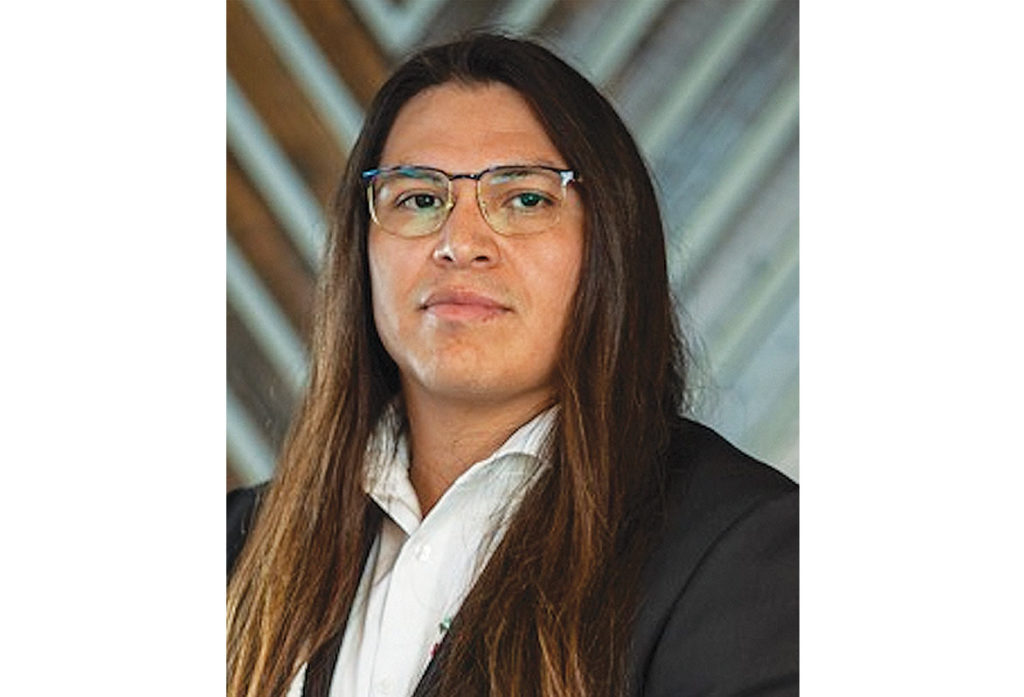
BENEFITS OF GAMING: The success of our gaming operation has allowed our tribe to thrive and continue to bring sustainability to my people today and the many generations to come. As I reflect on where we were and where we are in this moment, we have come a long way to say the least. Thank you to those who have paved the way, laying a foundation that we continue to build on for future growth of our nation.
Through gaming revenues, we continue to strengthen our government, building a strong team that consistently maintains our government operations while constantly researching for our next economic opportunity outside of our tribal gaming operation. We are fortunate to say that our gaming revenues have provided opportunity and resources for our tribal members, assisting in personal growth and sustainability. We have developed numerous programs within our government that have advanced our tribal membership. Education, healthcare, housing, and transportation are among the many ways we continue to strengthen our people.
We as a tribe understand how blessed we are to be in a position of rapid economic growth over the years and the fact that it wasn’t long ago, we had nothing. Therefore, it is a value of us to share our success with our community. Our success in the gaming industry has given our tribe many ways to assist in our goals for education through the local school system by providing classroom technology for extra curricular activities and after-school programs that provide tutoring opportunities for students. Regarding health and safety, we have proudly provided everything from fire squad trucks to a new ambulance through partnerships with the local fire department and hospital to ensure the best possible assistance for our community.
GOALS & INITIATIVES: Diversifying our economy is one of the most important actions we can take to make a positive impact on our tribes – a hot topic when our tribal council looks to create longevity for our people. We look at diversification to create sustainability and growth, but also as a way to supplement in areas where we may have setbacks or need capacity to give attention to other enterprises. By diversifying our portfolio, it allows us to do exactly that. We are not constantly relying on one enterprise to do all the heavy lifting, but instead we are planting multiple seeds to be able to pick our fruits from multiple trees. Not only is this important for the sustainability of our tribe, but it brings opportunity to our people.
I especially think about our younger generations and their futures as we strive for them to prioritize their education and hopefully, one day, come back home to continue to build our great nation in leadership roles. We must have the resources and opportunities for them to do so, and I see building out new businesses within our tribe that will allow it to be a possibility.
Bill Iyall, Chairman
Cowlitz Indian Tribe
ilani Casino Resort – Ridgefield, WA
ilaniresort.com / cowlitz.org
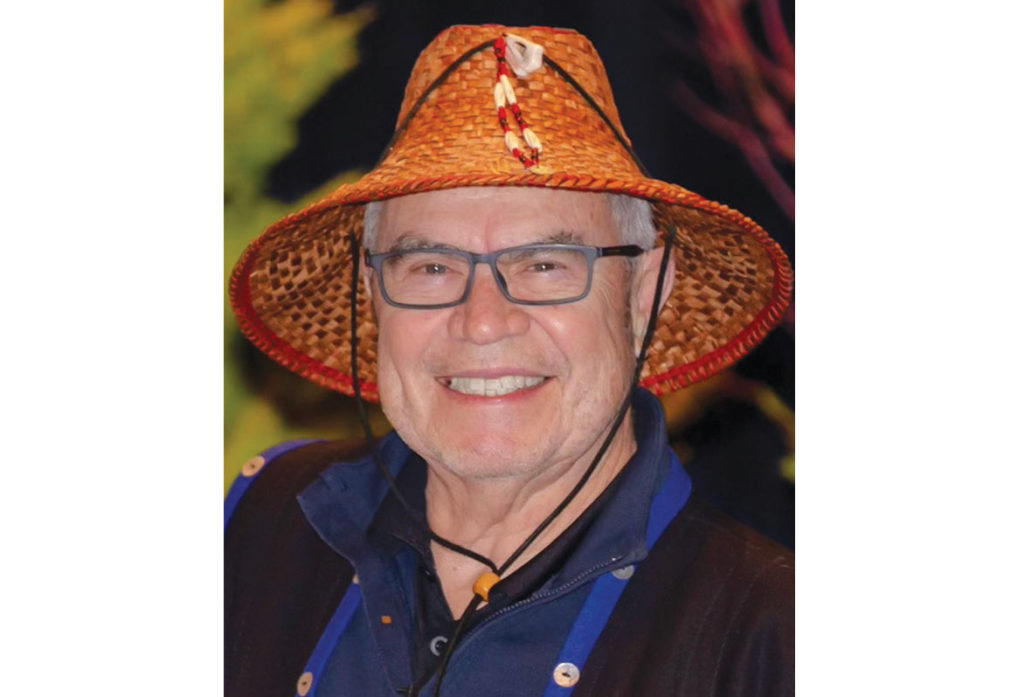
BENEFITS OF GAMING: The Cowlitz Indian Tribe is committed to preserving and honoring the legacy of our elders and ancestors by empowering our tribal members and community neighbors. The gaming revenue generated by ilani, our resort casino which opened in 2017, has allowed us to carry out that mission in more concrete and impactful ways than ever. Through our gaming revenue, we have been able to offer tuition reimbursement for tribal members seeking degrees from colleges, universities, and vocational institutions. In the 2023-24 academic year alone, this program benefited over 250 Cowlitz tribal members. Another example of how we use gaming revenues to benefit our people is the support and care we provide to Cowlitz tribal elders through health and wellness assistance, housing assistance, and other forms of critical financial support. Beyond the many ways in which the tribe uses gaming revenue for our members, we are also dedicated to uplifting our community neighbors in Clark County and throughout the State of Washington. The Cowlitz Tribal Foundation’s philanthropic efforts topped nearly $6 million in 2023, supporting the distribution of meaningful grants to 132 non-profits in Washington in areas ranging from food access, housing, natural resources, and everything in between.
GOALS & INITIATIVES: The success of ilani over the last several years has completely transformed the future of the Cowlitz Indian Tribe. Since the casino’s opening, we have also been able to open a world-class hotel and have transformed our reservation into an entertainment and recreation gateway for Southwest Washington. We hope that the coming years will continue to further these results and the economic success that we have achieved for our tribe, members, and partners. We are currently on a path towards self-management and view that as a defining goal for our tribe, as it frees additional resources to put back into our tribe and communities.
The Cowlitz Tribe recently announced our Cowlitz Enterprise Authority, which will oversee all the present and future economic enterprises of the tribe. As it is important for us to ensure that Cowlitz gaming is on a sustainable path, we believe that it is equally as important for the tribe to diversify our economic enterprises so that we are not entirely dependent on gaming revenue. The Cowlitz Enterprise Authority plans to explore expansion into retail, clean energy, and other enterprises that will leverage the success of ilani and diversify the tribe’s economic base, thereby setting the tribe on a sustainable path to care for and protect future generations of tribal members, and the greater community.
LEGISLATIVE: One of our top priorities is a clean legislative “fix” for the Supreme Court’s 2009 decision in Carcieri v. Salazar. This case narrowly interpreted the Indian Reorganization Act to require federally recognized tribes to demonstrate they were “under federal jurisdiction” in 1934 to benefit from the Act’s provisions, including the acquisition of land in trust. Congress must enact legislation to “fix” the Carcieri ruling so that all federally recognized tribes are treated equally under the most foundational federal statute that empowers Indian Country. It is a tragedy that it has taken this long, and we are grateful for those in Congress working to enact legislation to finally address this issue.
Delores Pigsley, Chairman
Confederated Tribes of Siletz Indians
Chinook Winds Casino Resort – Lincoln City, OR
chinookwindscasino.com / ctsi.nsn.us
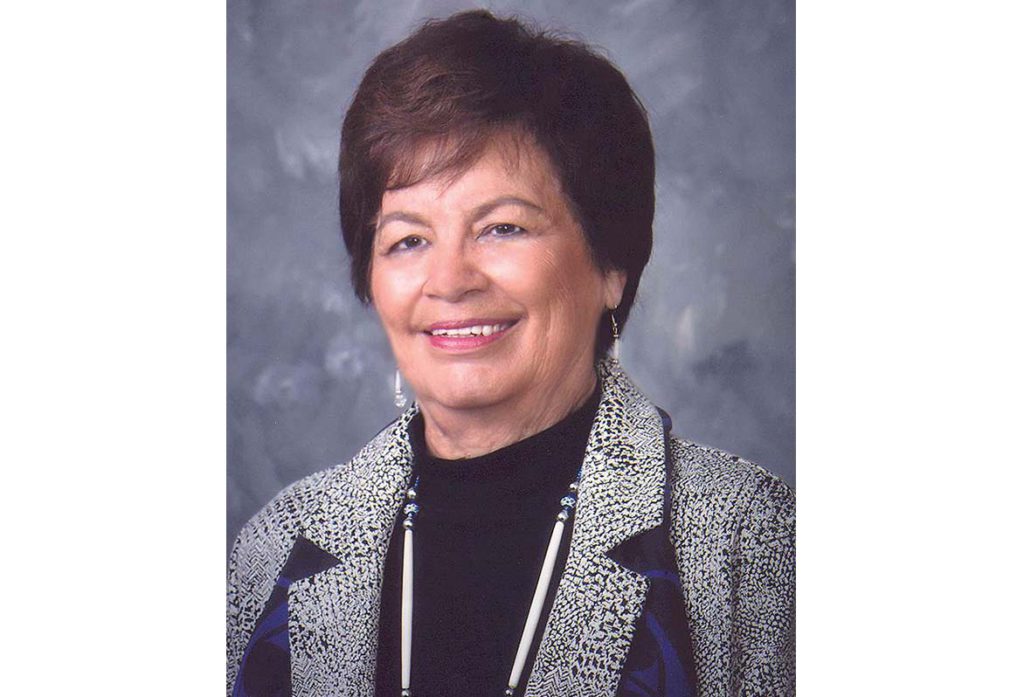
BENEFITS OF GAMING: Gaming revenue has been a blessing to the Confederated Tribes of Siletz Indians. Our tribe was restored to federal recognition in November 1977 after having been terminated in 1954. Restoration of the tribe provided few resources as most were lost at termination. It was extremely difficult and costly to get land in trust for gaming at our current location as we had no funds or land that met the definition of trust land for gaming.
Because we are a restored tribe, gaming has helped to return historical lands to tribal ownership to increase the tribe’s land base. Our original reservation was more than one million acres. Gaming provides educational support for all tribal members to attend college or vocational training and for educational incentives. It provides housing support and economic development funds and allows us to support the local school district. We were able to reintroduce language and culture classes and also provide natural resource management and habitat restoration. We recently regained our hunting, fishing and gathering rights but have no funding for fisheries or water resources.Through charitable funds provided by the casino, the tribe is able to provide support to other tribes’ needy programs, to local charitable organizations and to our own charities. It allows us to fully participate in all governmental activities in the State of Oregon and in the nation.
GOALS & INITIATIVES: The tribe’s current casino revenues supplement tribal and government services, however, we are in a challenging location on the Oregon Coast. We do have existing plans to develop a new casino, but this means going through the two-part determination that must be acted on by the Bureau of Indian Affairs.
LEGISLATIVE: There are many issues we face in our future because we are a restored tribe and did not receive our former reservation land at restoration. We must buy back land suitable for housing, economic development and other purposes, then have it taken into trust. For gaming purposes, as stated, we are currently in that process.
The tribe lacks adequate funds for law enforcement, housing, land buy back, funds for natural resource development and protection, and many other necessary functions to provide services to our membership of more than 5,500 individuals. Siletz has had to rebuild its government from 1977 to where we are today. We must face water and climate issues that affect our whole nation.
Dorie Rios, Chairwoman
Nottawaseppi Huron Band of the Potawatomi
FireKeepers Casino Hotel – Battle Creek, MI
firekeeperscasino.com/casino / nhbpi.org
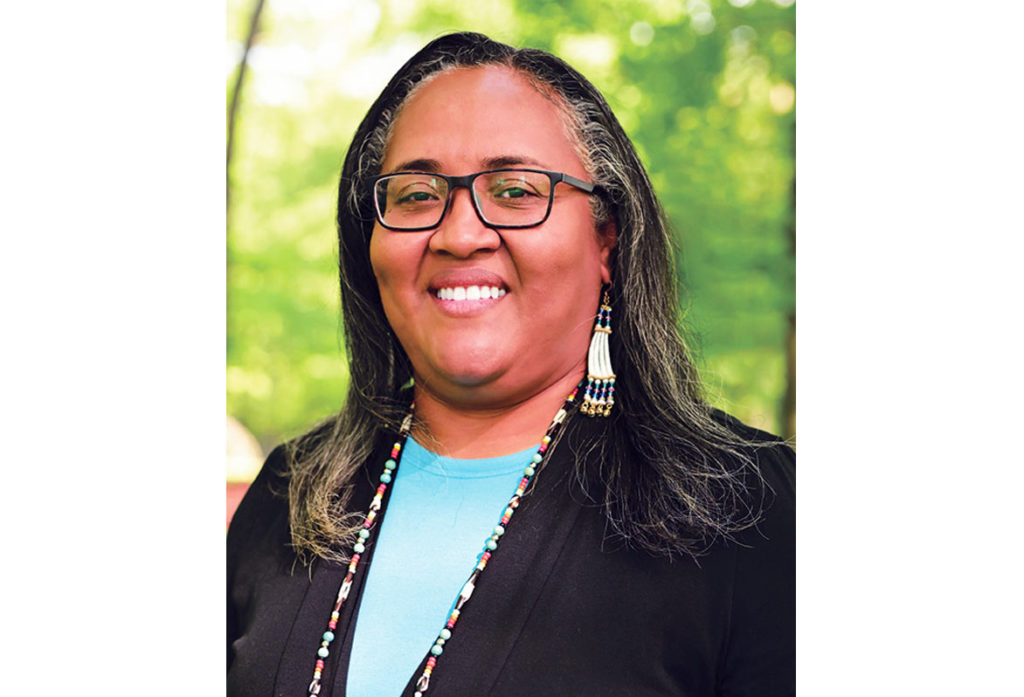
BENEFITS OF GAMING: Gaming revenues have significantly benefited our tribe, the Nottawaseppi Huron Band of the Potawatomi (NHBP), and the surrounding community through various initiatives and programs such as Tribal Member Benefits and Services, the compact-driven State and Local Revenue Sharing Boards, and the Native American Heritage Fund (NAHF). These revenues have allowed us to provide numerous health, education, and other various services to tribal members of all ages, ensuring enhanced quality of life and opportunities for our community.
A portion of our gaming revenues is allocated to the State of Michigan, which supports various public services and infrastructure projects that benefit all residents. The Local Revenue Sharing Board uses its portions of the funds to support community development projects, public safety, and social services in the surrounding areas.
The NAHF is a crucial initiative supported by our gaming revenues via the state gaming compact. It funds projects that preserve and promote Native American culture and history. This includes educational programs, cultural events, and heritage preservation efforts that benefit both our tribe and the wider community.
Through these avenues, gaming revenues have not only empowered our tribe by providing essential services and opportunities, but have also enriched the broader community, fostering a spirit of cooperation and mutual benefit.
GOALS & INITIATIVES: Our goals for NHBP and FireKeepers Casino Hotel are deeply rooted in our cultural values, guided by the Seven Grandfather Teachings, and focused on future growth and expansion. These goals aim to strengthen our community, preserve our heritage, and ensure sustainable development through economic diversification, education and infrastructure.
LEGISLATIVE: NHBP is monitoring several legislative, judicial, and political concerns. One key legislative issue is the implementation and enforcement of Savanna’s Act. This act aims to address the crisis of missing and murdered Indigenous people (MMIP) by improving the federal government’s response through better data collection, law enforcement training, and interagency coordination. Ensuring that Savanna’s Act is fully funded and implemented is critical for the safety and justice of Indigenous communities.
Another significant concern is the protection of gaming rights exclusively on tribal lands. The economic stability and growth provided by gaming operations like FireKeepers are vital to our community’s welfare. We are vigilant about legislative and judicial actions that might undermine these rights or permit non-tribal entities to operate gaming facilities, which could threaten our sovereignty and economic foundation.Both these issues underscore the ongoing need for vigilant advocacy and partnership with federal and state governments to protect and advance the interests and well-being of the Nottawaseppi Huron Band of the Potawatomi.
Geoffrey Standing Bear, Principal Chief
Osage Nation
Osage Casino Hotel – Tulsa, OK and Osage Casinos in Bartlesville, Hominy, Pawhuska, Ponca City, Sand Spring and Skiatook
osagecasinos.com / osagenation-nsn.gov
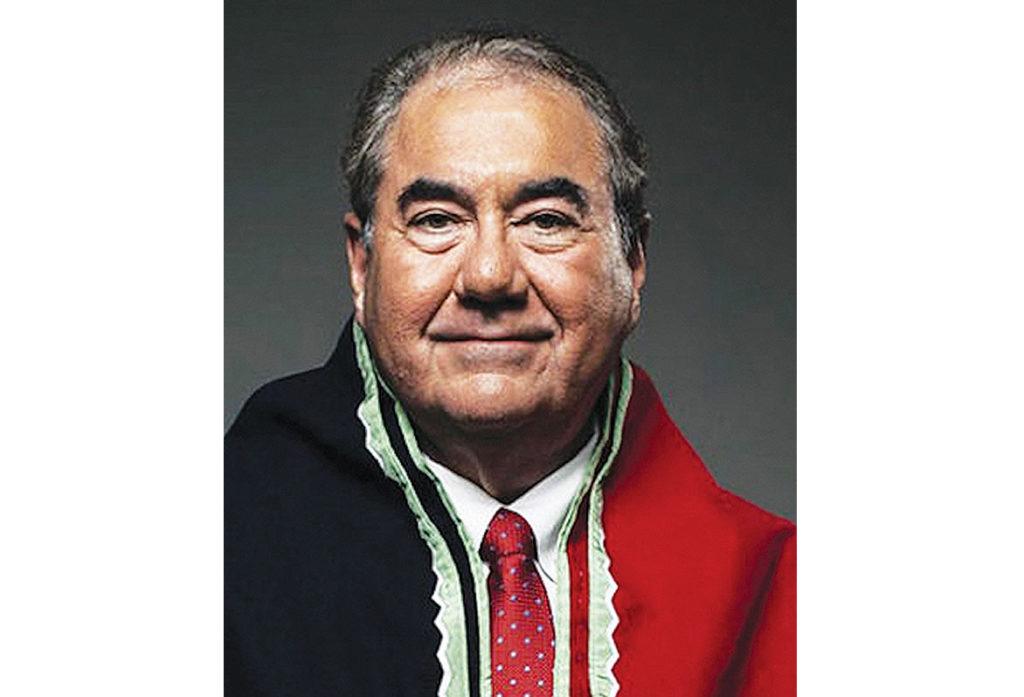
BENEFITS OF GAMING: Indian gaming, and the benefits of it, are relatively new to the Osage compared to many of the other tribes. When I took office as a member of our legislature, the Osage Congress, my goals were centered around this economic growth. As a legislature, we said, ‘What is important?’ We came to the quick conclusion that the answer was the preservation of our language, culture, and land acquisition. We had lost 90% of our surface lands during those 100 years of that system of government, and we also had lost about a third of our headrights out of the tribe. The list goes on and on.
We started getting into actual gaming operations with very small casinos. When I became Chief ten years ago, I was able to catch that momentum that was already established by decades of Osages seeking economic self-sufficiency and self-determination and apply it quickly. We got busy taking gaming revenues and rebuilt our traditional arbors. I went and looked at other tribes’ language classes and immersion programs around the country and we started building our programs. There were no significant federal monies for that; this was all paid for by gaming.
The time came when we were going to do a new casino in Tulsa, which is the closest to the urban area we have. My predecessors had a smaller casino there, but we wanted to build a larger one – the size that market studies said we should be doing. We were debating this amongst ourselves, and then one week, received a call that said, ‘Ted Turner’s going to sell his 43,000-acre ranch.’ It used to be ours, of course, this whole area. The first thing I did was call the banker that we had been doing business with. We quickly put together a consortium of financial institutions led by the Bank of Oklahoma. We tapped into those resources by pledging, as you must in gaming, parts of the revenue of our gaming. That banking relationship, which I’d learned how to navigate working with other tribes, opened the doors, and we were able to purchase the 43,000-acre ranch. We were able to build the new casino in Tulsa and the other casinos, and we unleashed all that power that had been kept here. I would not allow a mortgage to be involved, and we paid off everything within five years, almost to the week.
Other tribes throughout the country have been so open with us. I was able to go down to one tribe and learn about their community development financial institution. We now have one, which loans money to our people who had bad credit and builds up their credit. We are getting consumer loans going and bought the old First National Bank building with gaming money. We are using a grant and our own money to build out internet broadband for the first time this year. There’s still half of our people that don’t live here and we are trying to attract them back, especially our younger tribal members.
GOALS & INITIATIVES: The gaming enterprises are the income generators. We’ve been trying to diversify like other tribes and have found that difficult. We began using our gaming monies and became enamored with 8(a) programs. But one of the tribes in Oklahoma who was the most successful in this, visited with me. Many tribal nations tried to look at 8(a) as an end all, magic pill, but this tribal nation said, it’s not, it’s a tool. There’s an over reliance on 8(a), and we did make that same mistake. We got into the construction part of our operations, IT, working with the federal government and military bases. We did all these other federal entities and weren’t successful. And we ended up using our gaming money to subsidize these areas we did not intend to subsidize. We do purposely subsidize activities such as our greenhouses, bison, and cattle herds, but 8(a) enterprises just weren’t working properly, because we thought it was sort of a magic path, and it’s not. We learned that hard lesson like a lot of tribal nations.
What we want to do, and have done, is look for business segments. We ended up working near Tulsa with unmanned aerial systems, and we are working with Oklahoma State University and people in the business. We’re not trying to do our own companies and compete. We are leasing to companies that are doing drone testing and wind tunnels. We are looking at that larger segment of the business. Within that, what business opportunities are there now? That was a big turn and we’ve just made it.
We’ve acquired a few thousand more acres, and we have priorities on where we go to purchase. We want to get land close to the relatively small freshwater aquifers and contiguous to individual allotment lands that people own fractional interests. Even after the Cobell process, there was not enough money from the federal government, although we were appreciative of it, to finish those missions. So, we are acquiring the undivided interests of lands that have an Indian restricted status.
I’m so proud of our language people. In the movie, Killers of the Flower Moon, Robert De Niro learned a lot of lines in the language. Lily Gladstone and the other ladies worked with our teachers. We are down to a handful of speakers, but after 10 years, we are at the point where we have good teachers. And the children are moving from just saying prayers and songs, which is so beautiful, into conversational Osage. All of that is made possible by Indian gaming.
LEGISLATIVE: We are not what they call a McGirt tribe, which includes the Five Civilized Tribes in Oklahoma. We are filing friend of the court briefs in similar cases in our area to see if we can clarify our situation, because each tribal nation is unique. All the functions of a government – condemnation power, police powers, etc. – how does that translate today to non-McGirt and the McGirt cases of tribal nations? That is a pending issue right now. Government is expensive, so we try to keep government small here. If you try to grab responsibility, there’s a cost. The various tribes are trying to work those issues out daily. We have a hostile governor here in Oklahoma to tribal nation development, Governor Stitt. He’s not very good in our partnerships. Hopefully that’ll change – I’m not giving up on it.
These gaming dollars are rare historically. I’ve been in this business since 1980, and these funds, monies and the activities involved, could be gone very quickly. There are the debates about sportsbook, geofencing, and all the potential threats to the building of brick-and-mortar casinos compared to using mobile devices, and how that interface is going. And then the role of states, federal government, and the tribal nations. That area of conflict and resolution between the federal government, states, and tribal nations is really what make up Indian law.
Economics at the end of the day will govern the issue, but we know by the time you’re able to read those tea leaves, a lot of the court decisions are already heading to being written and the legislative process is already engaged. So, we have to all talk to each other, recognize our differences, and respect each of our ways. We need to remember what’s important – our culture, our language, and our land. And from there, good mental and physical health among our people. That’s what inspires me every day.
Wena Supernaw, Chair
Quapaw Nation
Downstream Casino Resort – Quapaw, OK; Quapaw Casino – Miami, OK; Saracen Casino Resort – Pine Bluff, AR
downstreamcasino.com / quapawcasino.com
saracenresort.com / quapawtribe.com
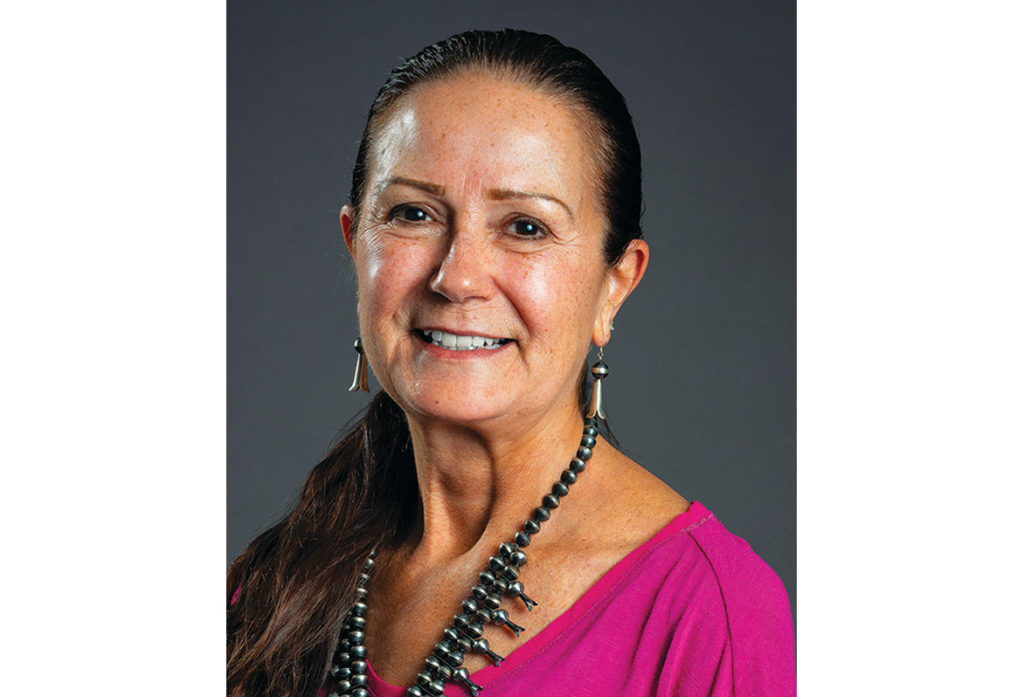
BENEFITS OF GAMING: Many of our programs and services for tribal members and the entire community would not be possible without gaming revenue. We have strong culture programs focused on language, history, our library, our museum, and tradition. We also have a growing Department of Public Safety, which includes marshals, fire/EMS, emergency management, addiction counseling, juvenile services, and court for our entire community. We also have extensive tribal member services such as medical assistance, elder housing, family housing, utility assistance, school clothing allowance, veteran assistance, emergency financial assistance, higher education assistance, quarterly meat distribution and burial assistance. Additionally, our Resource Management is focused on land management, healing our land through remediation, forestry, wildlife conservation, our meat processing plant (Quapaw Cattle Company) and food sovereignty. Our tradition teaches us there is no greater honor than feeding people.
GOALS & INITIATIVES: Our primary focus is on debt repayment so that we can expand our tribal member services. Our commercial casino in Pine Bluff, AR, located in our original homeland, is experiencing a major expansion with a hotel and event center. We think it will be the finest hotel in the state when it opens in late 2025. Our original bingo hall, which became the Quapaw Casino, will have a brand-new building in the next two years. Downstream Casino Resort is now 16 years old and is ready for renovations and improvements that will commence next year. Additionally, the housing shortage in Northeast Oklahoma, specifically within our exterior boundaries, has propelled us to start building affordable single-family homes. We started building 20 homes that will be finished in 2025 and we plan on building even more.
LEGISLATIVE: Defending and strengthening tribal sovereignty is at the heart of what the Quapaw Nation government does. The Oklahoma governor is uncooperative with the tribal nations that were removed to Indian Territory that became the State of Oklahoma. We enjoy strong relationships with other Oklahoma branches of government and departments. However, our tobacco compact expires at the end of this calendar year and the negotiations may not result in a compact the Quapaw Nation is happy with. In addition, the Oklahoma governor has made a tribal compact offer that, in essence, turns a sovereign nation’s tribal tags into vanity plates. That is unacceptable. Our reservation was upheld to have never been disestablished by the Oklahoma Court of Criminal Appeals almost three years ago. We are a sovereign nation and enjoy strong government-to-government relations on many levels. Unfortunately, not with the State of Oklahoma’s governor.
Forrest Tahdooahnippah, Chairman
Comanche Nation
Comanche Red River Hotel Casino – Devol, OK and Comanche Casinos in Cache, Devol, Elgin, Lawton and Walters
comancheredrivercasino.com / comanchenation.com
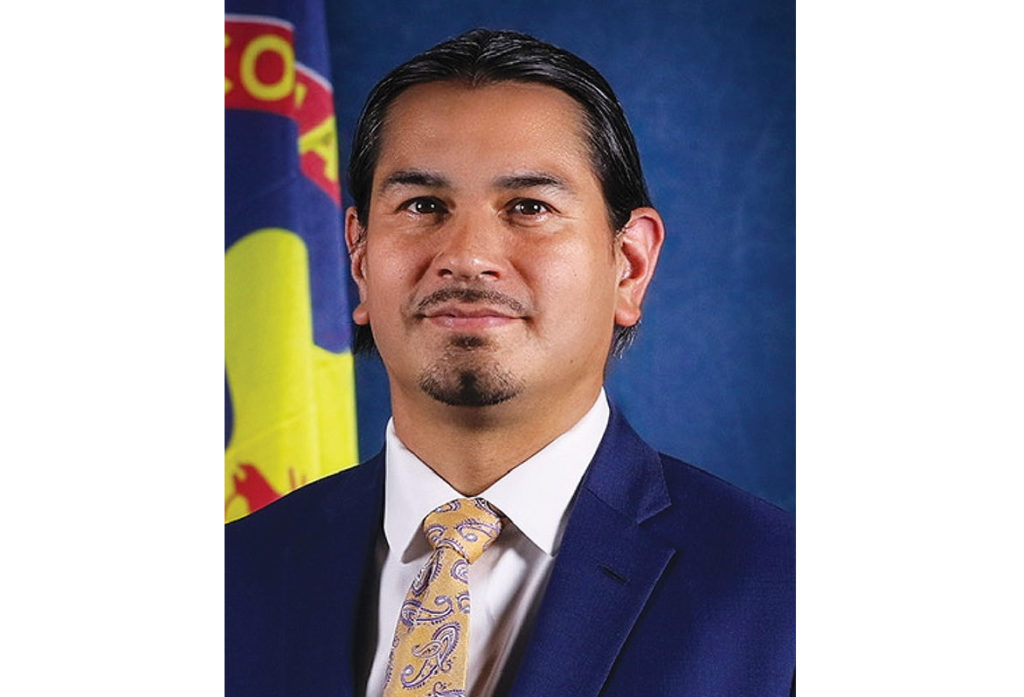
BENEFITS OF GAMING: Gaming revenue is one of the most important sources of revenue for the Comanche Nation’s tribal government. Gaming revenue funds many tribal programs, including law enforcement, tribal courts, elder services, job placement, land acquisition, burial assistance, substance use treatment, women’s shelter, student services, and child welfare services, to name only a few. As with any community, our citizens may face difficult life challenges – from natural disasters to health problems. The Comanche Nation uses much of its gaming revenue to provide support for those in need.
Gaming revenue also provides an immense benefit to the surrounding community. The Comanche Nation casinos employ almost 800 people in Southwest Oklahoma. The Nation’s casinos contribute millions to the local economy in terms of publicity, payroll, infrastructure and other investments. Most importantly, our casinos offer a fun and exciting experience for the members of the surrounding community. Our casinos offer a place to enjoy a great meal, spend time with friends, and potentially hit a jackpot.
GOALS & INITIATIVES: Our primary goal is always to provide a great experience for our patrons. To do that, we plan to continue to upgrade and expand our facilities. The Nation will be completing construction at our Cache Casino this year, and we look forward to offering a unique experience at the foothills of the Wichita Mountains. As Chairman, I would like to see significant upgrades to both our Comanche Red River Hotel Casino and to our Comanche Nation Casino in Lawton. I am also working towards having our Nation return to its roots and begin offering high-stakes bingo again.
I would also like to see us diversify our entertainment options to more non-gaming and family-inclusive options. My goal is for the Nation to build an event center for concerts, banquets, powwows, and other events. I also hope to add family-friendly amenities to the Comanche Red River Hotel.
LEGISLATIVE: The prospect of legalized gambling in Texas is a concern. Many of our patrons are tourists from Texas, and legalized state gaming could draw them away. Legalized online gambling is similarly a concern and competitive threat. However, Comanche casinos provide a unique experience, and we are working diligently to ensure that experience is unparalleled. The market for gaming continues to evolve and our team is working to stay on the cutting edge of the industry.




